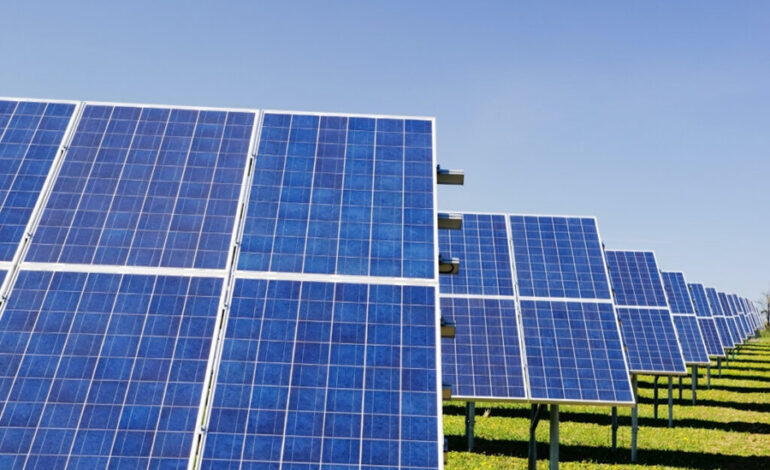Are Solar Panels Sustainable? Examining the Environmental Impact

Introduction
Are solar panels truly sustainable? At first glance, these clean energy solutions appear to harness the sun’s renewable power without emitting greenhouse gases. However, delving deeper into their lifecycle reveals complexities that merit scrutiny. This article aims to shed light on the sustainability of solar panels, exploring both their positive and negative environmental impacts.
1. How Sustainable Are Solar Panels?
The sustainability of solar energy involves assessing various factors throughout the lifecycle of photovoltaic (PV) cells. Critical considerations include raw material sourcing, energy consumption during mining and manufacturing, use of hazardous chemicals, and end-of-life disposal. To comprehend the true sustainability of solar panels, it is essential to navigate through these complexities.
2. The Benefits of Solar Panels
Clean Energy
Solar panels significantly reduce reliance on finite fossil fuels, curbing the release of CO2 and particulate matter into the atmosphere. Unlike traditional energy sources, solar panels operate without emitting toxic waste during their lifespan.
Lower Carbon Footprint
Comparatively, solar panels have a minimal carbon footprint, estimated at 4.5 – 48 grams of CO2 equivalent per kWh of electricity produced. This stands in stark contrast to natural gas and coal, which emit significantly more CO2 for the same energy output.
Energy Payback
Solar panels demonstrate an impressive energy payback period, offsetting their carbon emissions relatively quickly. As technology advances, this payback period is expected to decrease, making solar energy even more efficient.
Energy Independence
Solar panels contribute to energy independence, leveling the playing field on national and individual levels. Decentralized solar power empowers communities, fostering a sustainable energy landscape.
3. Why Solar Panels Are Not Sustainable
Despite their merits, solar panels pose environmental challenges that cannot be ignored.
Sourcing of Materials
The production of solar panels relies on mining raw materials, including quartz, aluminum, copper, silver, cobalt, and lithium. The extraction of these materials raises concerns about environmental degradation and unethical practices, such as child labor in cobalt mining.
Transporting Materials
Global transportation of materials contributes to the overall carbon footprint of solar panel production. The dispersion of materials from various locations worldwide increases the environmental impact.
High Energy Use
The manufacturing process involves heating quartz to high temperatures, demanding significant energy inputs. In regions where fossil fuels dominate the energy mix, this can result in a notable environmental footprint.
Chemicals in Manufacturing
Solar panel production requires the use of chemicals, such as cadmium, hydrochloric acid, nitrogen trifluoride, and sulfur hexafluoride. Improper disposal of these chemicals poses environmental risks.
Worker and Human Rights Issues
Complex supply chains raise concerns about working conditions. Initiatives like the Supply Chain Monitoring Programme aim to monitor and address social and environmental impacts throughout the production process.
Land Use
The large-scale installation of ground-based solar farms necessitates significant land use, impacting wildlife and biodiversity. Strategic regulations can address this concern by promoting alternative siting options.
End of Life and Recycling
The impending challenge of managing solar panel waste, predicted to reach 78 million tons by 2050, calls for effective recycling infrastructure. Currently, legal obligations for recycling vary globally, posing a significant hurdle to sustainable disposal.
4. The Future of Solar Panels
While current challenges persist, ongoing technological advancements offer hope for a more sustainable future for solar panels.
Cleaner Manufacturing
Developing alternative manufacturing methods that prioritize recycled materials over virgin ones can reduce the environmental impact of solar panel production.
Increased Efficiency
Advancements in technology are expected to enhance the efficiency of solar panels, shortening their energy payback period and extending their lifespan.
Large-scale Recycling Facilities
As solar panels reach the end of their life, larger and more efficient recycling facilities can address the mounting issue of electronic waste. The goal is to establish a circular economy for solar power.
Conclusion
In conclusion, the sustainability of solar panels is a nuanced topic. While not without environmental challenges, solar panels offer a cleaner, greener alternative to traditional energy sources. Ongoing innovations and a commitment to addressing environmental concerns are crucial for ensuring that solar panels continue to contribute positively to the transition towards sustainable energy solutions.









